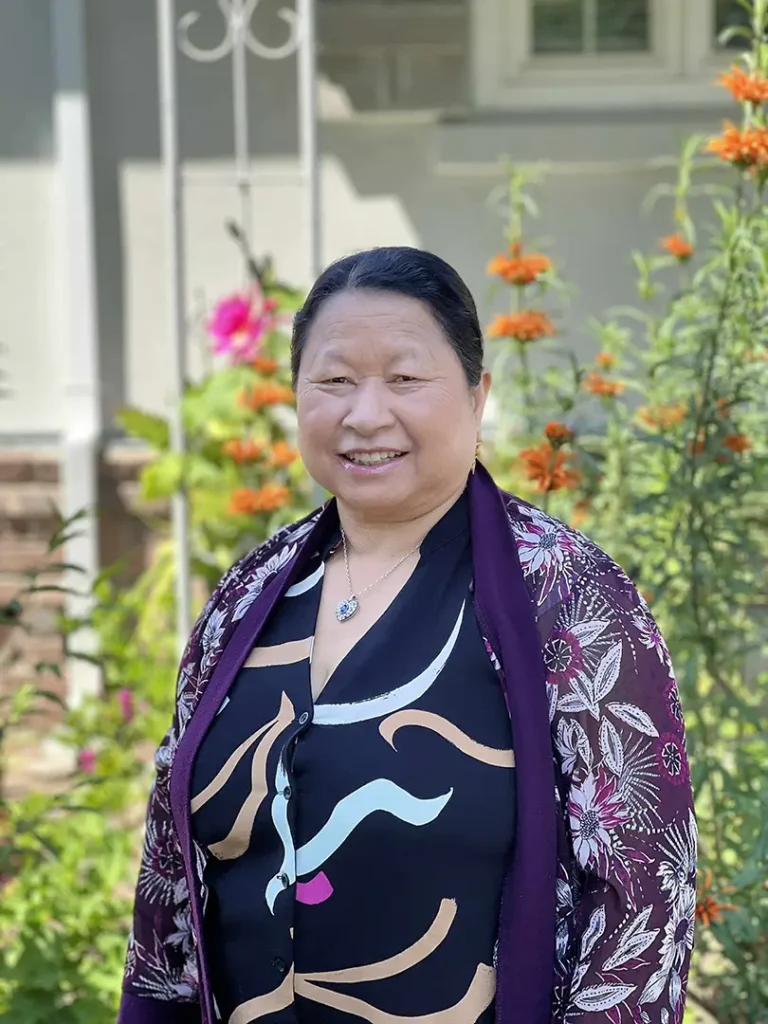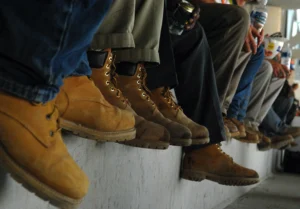It will become harder for millions of people who rely on Medicare and Medicaid to stay covered after passage of the “One Big Beautiful Bill.” The legislation, officially known as House Resolution 1, was signed into law on July 4 as a tax measure aimed at reducing government spending, including funding for health-related programs like Medicare and Medicaid. The act is estimated to save $1 trillion in health care costs over the next decade, but its impact on low-income families, particularly immigrants will be especially detrimental.

“We need some love and compassion,” Mai Vang, a Sacramento resident, said. Vang is worried about how the act will impact her access to health care. She came to the U.S. as a refugee in 1992 following the withdrawal of the U.S. military forces from the Secret War in Laos. She was already in her 20s and had four children.
With no formal education, Vang spent two decades working on an electronic production line before she was diagnosed with a heart condition and kidney failure. Following several years of dialysis treatment, she underwent a successful kidney transplant in 2023 that was critical to her continued health. Vang got a second chance, she said, but the ongoing health complications left her unable to return to the job she once relied on to support her family.
This act “represents the biggest change to the health care system since the passage of the Affordable Care Act 15 years ago,” said Larry Levitt, executive vice president for health policy at KFF. “And its effect amounts to what is effectively a partial repeal of the ACA.”
Levitt, who spoke at a media briefing in July hosted by American Community Media, said the act will increase the number of people uninsured by 11.8 million — but that number may be lower once last-minute changes are made to the legislation.
“I already have a hard time paying for medicine, my house and everyday expenses,” Vang said in-language. “The cost of things — even like fast food — are already expensive. And I’m scared of losing my housing,” she lamented.
Since the legislation was signed, Vang worries daily about paying for her medicine, increasing insurance costs and possibly losing her benefits.
Why does this matter?
Medicare is a health program for those age 65 and older while Medicaid is a state and federally funded program. Medicaid began as a health care and anti-poverty program more than 60 years ago, offering basic medical coverage to low-income individuals and those with disabilities who can’t otherwise afford care.
Many in the Hmong community rely on Medicaid at an alarming rate of 46.8%, which is the highest coverage compared to other AAPI groups in the state of California, while another 5.5% have no health insurance at all, according to Census data.
Poverty is the primary link to Medicaid programs. A 2019 AAPI Data survey found that nearly 25% of AAPIs in California experienced poverty despite being employed. Among working AAPI groups, Hmong had the highest poverty rate (44%), followed by Native Hawaiians and Pacific Islanders at 36%.
Although the changes to Medicare and Medicaid won’t happen all at once, low-income families and those with disabilities like Vang are likely to face the greatest challenge.
The new act makes it harder to get and keep coverage for immigrants
More than 70 million people in the U.S. currently receive Medicaid benefits. New policies like work requirements, stricter eligibility checks, and immigration restrictions may limit immigrants and refugees from accessing benefits.
For immigrants who do not speak, read or write English well, having to do more paperwork could mean the risk of losing their health coverage because of errors or missed deadlines.
For older adults that are enrolled in both Medicare and Medicaid they could face a double impact.
The Affordable Care Act (ACA) will also be impacted making it more difficult for people to join or remain in the program by requiring enrollees to update their information more regularly such as income, immigration status and other details, require more frequent enrollment and shortened enrollment periods — from Jan. 15 to Dec. 15. Changes to the act means that some lawfully present immigrants may no longer be eligible for ACA coverage.
Impact of fear on low-income and immigrant communities
Vang says she pays $170 per month for her share of Medicare, plus 5% out-of-pocket for certain drugs — she fears that it will change as a result of the new legislation. In her situation, she will need medication for her kidney for the rest of her life.
Medicaid has served as a lifeline for many low-income and immigrant families. It was the choice between “medicine and food” or the “education of their children and taking care of their medical problems,” said Dr. Ilan Shapiro, chief health correspondence and medical affairs officer at AltaMed Health Services, during the American Community Media briefing.
“I’m actually worried,” Shapiro continued, “about the trickling effect of HR1.” He explained that when patients avoid primary care services, it can lead to neglected care and increased problems. “When you don’t have the medication — you don’t have your high blood pressure medications,” he said, “complications are going to go up.”
In the long run everything is impacted. “And that will have a direct impact. Not only in our lives, not only in our patients, not only on us as health care providers, but on the community. A lot of rural hospitals and community clinics are the drivers of economic hope,” he added.
Recently, states such as California that offer coverage to undocumented immigrants have considered reducing coverage due to proposed penalties from the Trump Administration.
It is a matter of “life and death,” Kao Ye Thao, director of policy and partnerships at Hmong Innovating Politics (HIP), said in a statement.
“Many of our community members are limited English proficient and already face systemic barriers to proper care,” Thao added.
HIP is a Sacramento-based nonprofit that advocates for the Hmong people. HIP’s mission is to “strengthen the political power of Hmong and disenfranchised communities through innovating civic engagement and strategic grassroots mobilizations,” as stated on their website.
“It is essential that we use this time now to hold our elected officials accountable to not only reject the fascist policies of the federal administration but to also implement budgets that protect us from the catastrophic impacts of the Big Ugly Bill,” Thao said.
Although changes will not occur until 2027 or later, as for Vang, she already feels the hardship and can only hope that there is a way to change the law or that other programs will be available to help those in her situation.
This story is part of the Solving Sacramento journalism collaborative. Our partners include California Groundbreakers, Capital Public Radio, Hmong Daily News, Russian America Media, Sacramento Business Journal, Sacramento News & Review and Sacramento Observer. Support stories like these here, and sign up for our monthly newsletter.
By Macy Yang















